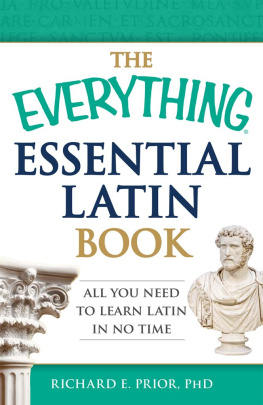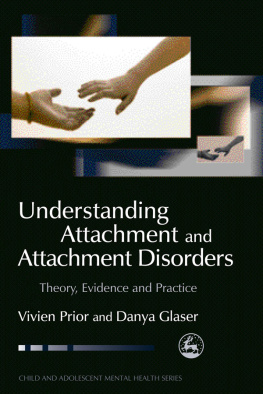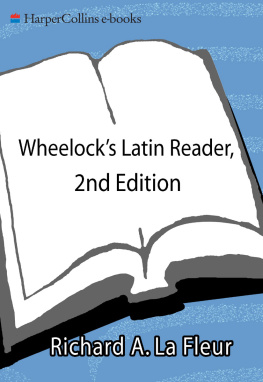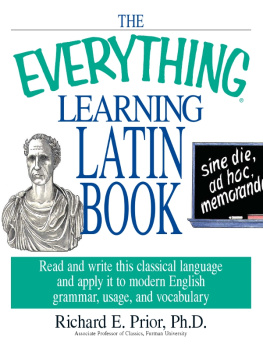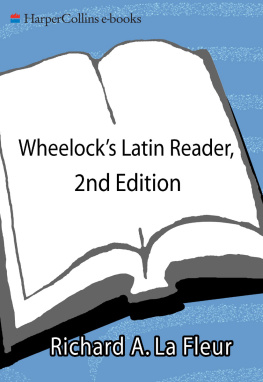ESSENTIAL
LATIN BOOK
All you need to learn Latin in no time
Richard E. Prior, PhD

Avon, Massachusetts
Contents
Introduction
Latin has acquired a reputation for being a useless and lethal pursuit, a bitter medicine cruelly administered by strict schoolmarms old enough to be native speakers themselves. Perhaps youve heard this little schoolboy chant: Latin is a dead language, that is plain to see. First it killed the Romans, and now its killing me. In truth, Latin is more akin to the luscious grape cluster hanging just out of the foxs reach in Aesops fable. Rather than apply any effort to obtain the prize, he skulked off muttering how sour they probably were. If only he had tried hard enough to taste even a single grape!
As off the mark as that little ditty is, it does bring up some important points. First, what does dead mean when applied to a language? Language is a living thing. It grows and changes day by day, imperceptibly, just as an infant grows to adulthood. There was never any calendar date marked when the folks in Rome stopped speaking Latin and started speaking Italian! The confusion may lie in the names we give languages. Ure Faeder the eart in heofenum is the beginning of the Lords Prayer in English as English was spoken fifteen hundred years ago. English isnt a dead language, but it isnt spoken like that anymore, so we call that kind of English Old English. Likewise, the language of Caesar could be called Old Italian. (Or Italian Modern Latin!) Studying Latin, then, is studying the snapshot of a whiz kid who is now grown up.
The story of ancient Rome represents about 25 percent of all recorded history. If ancient Rome and her language are dead, tenacious ghosts remain. Nearly a billion people today speak Modern Latin (i.e., [id estthat is], French, Spanish, Portuguese, et al. [et aliaand the others]). If you look out your window and see bricks, concrete, or a paved road; if you turn on the news or pick up a newspaper and see any reference to law or government; youre looking at Romes ghost. In fact, if you speak English, youre perpetuating Romes linguistic legacy. Thanks to the forced importation of Norman French into England in 1066, over 60 percent of English vocabulary is derived from Latin, not to mention the fact that centuries ago the Latin language was considered so perfect that many fussy grammar rules (e.g., [exemplgratifor the sake of example], not ending sentences with a preposition, avoiding double negatives, not splitting infinitives, etc. [et ceteraand the others]) were imposed on English.
The second point that that ridiculous schoolboy rhyme evokes involves Latins deadly effect on students. All too often people approach foreign languages as if they were simple questions of word substitution. This tack only leads to frustration, disaster, and sour grapes. Language may seem to be nothing more than words, just so many beads on a string, but it has a crucial component called syntax. Syntax is how words show their relationship to one another. How can you tell what or who is performing the action of the verb? How do you know whether the action of the verb is over, in progress, or hasnt happened yet? If Tim makes a reference to Melanies cat, how can you tell whether Melanie owns the cat, the cat owns Melanie, or Melanie is just the name of the cat? The key is syntax, and the syntax of Latin is the adventure of this book. Its a very different critter from the system English uses, so set aside your notion of how language works and prepare to see the world through new eyesRoman eyes!
CHAPTER 1
The Key to Understanding Latin
Youre all set for some hot coffee, but one sip makes you spit and declare that its horrible coffee even though you know its tea. Studying Latin is a lot like that. If you insist that Latin is a substitution code for English, youll only get more and more ready to spit. There are some crucial differences in the way English and Latin operate as languages.
The Significance of Syntax
The most striking difference between English and Latin lies in syntaxthe way words show their relationship to each other in a sentence. A word sitting by itself has a meaning, but thats all. When its in a string with other words, though, it has to have a way to show how it interacts with the other words around it. Exactly how that relationship is shown doesnt matter. What matters is that all the speakers of the language agree on the rules.
When you speak or write English, words just seem to come out and fall into place in a way that makes sense. In fact, the key to English syntax really is place! Consider these two sentences:
Money the gave Jeff me when at were yesterday party the we.
Jeff gave me the money yesterday when we were at the party.
Take a closer look at those examples. Who did something? What did he do it to? Who benefited from his action? Where did it happen? Now for the big question: How do you know any of these things? Both sentences contain the same words; the only difference is word order. Languages that rely on word order to make sense are called analytical.
Using word order to show the relationship between words is an arbitrary way to do it. Its just what English speakers all agree to do. Take a look at the concept of this sentence: Mark loves the dog. Does Mark come first in time? Does the dog? They are all there; they all happen simultaneously. Since they are all there together at the same time, there is no real reason for Mark to have to come first in the sentence. The only reason he comes first is because the rules of English dictate that if he is the one with the affection, he has to come before the verb in the sentence. Swap the word orderthe dog loves Markand the meaning changes dramatically.
How Latin Syntax Works
Latins MO (modus operandway of operating) is based on quite a different system of rules. Lets visit Mark and his best friend again, but this time in Latin.
Marcus canem amat. (Mark loves his dog.)
Canem Marcus amat. (Mark loves his dog.)
Amat canem Marcus. (Mark loves his dog.)
Marcus amat canem. (Mark loves his dog.)
Canem amat Marcus. (Mark loves his dog.)
Amat Marcus canem. (Mark loves his dog.)
How can all six mean the same thing?!
Heres another example. See if you can figure out what tiny change in the Latin made such a big change in the meaning.
Marcum canis amat. (The dog loves Mark.)
Canis Marcum amat. (The dog loves Mark.)
Amat canis Marcum. (The dog loves Mark.)
Marcum amat canis. (The dog loves Mark.)
Canis amat Marcum. (The dog loves Mark.)
Amat Marcum canis. (The dog loves Mark.)
In the English version you know whos doing what to whom based on which noun comes before or after the verb. The doer comes first, then the action, then the doee. In the Latin version, what comes first really doesnt matter. The position may change, but as long as the endings dont, the meaning remains the same. Inflected languages like Latin use word endings as flags to show whos doing what to whom.

